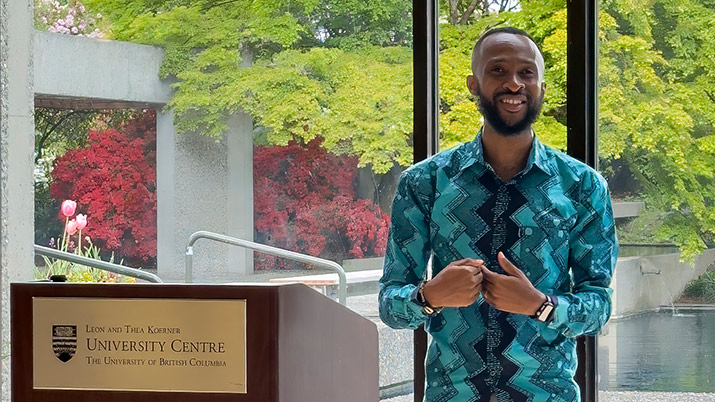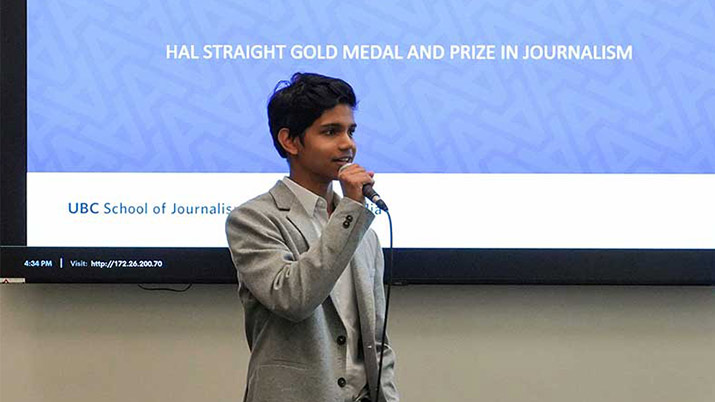The UBC Graduate School of Journalism has launched an ambitious multimedia site, The Pain Project, to document one of the greatest challenges to treating chronic illnesses: severely constrained access to morphine.
The site launch comes as a United Nations conference opens in New York devoted to examining the global challenges of treating cancer and other diseases.
The Pain Project results from a year-long investigation by UBC’s International Reporting Program. Teams traveled to India, Ukraine and Uganda to determine how these countries manage the pain of patients suffering from cancer and other terminal diseases.
Unlike many global health problems, pain treatment is not about money or a lack of drugs, since morphine – the gold standard for treating pain – costs pennies per dose and is easy to make. The IRP found that bureaucratic hurdles, and the chilling effect of the global war on drugs, are the main impediments to access to morphine.
“This story of global morphine shortages is one of those issues that both the media and the medical community have overlooked,” says Prof. Peter W. Klein, acting director of UBC’s Graduate School of Journalism and a former 60 Minutes producer, who led the project. “I’m proud we’ve been able to shed light on this hidden human rights crisis.”
In an interview with UBC students for the project, the executive director of the UN Office of Drug Crimes admits that one of the side effects of drug laws that curtail access to legitimate medical opiates is that some patients around the world suffer needlessly. The high-level UN Conference on Non-Communicable Diseases begins Monday September 19 and runs for two days.
The website features a color-coded map that shows the scope of the problem, which extends beyond the developing world. Videos from each of the three countries showcase the stories of patients struggling with pain, and the caregivers who have gone up against intractable systems in order to help them, including:
- A former KGB agent in Ukraine who is dying of prostate cancer and sleeps with a gun under his pillow, in case the pain becomes unbearable
- A Ukrainian man who risks jail time by trafficking narcotics to get patients access to morphine
- An Indian doctor, frustrated with drug laws, who combines readily available analgesics to ease the pain of local cancer patients
- A doctor who led a successful movement to reform Uganda’s rules around morphine distribution and palliative care
- Traditional medicine’s role as the first line of treatment for most Ugandans
This website is part of an ongoing project about global access to morphine, which includes a documentary for Al Jazeera, Freedom From Pain, which aired on July 20, 2011.
This is the third project of the International Reporting Program. Its first documentary, Ghana: Digital Dumping Ground, was produced in partnership with PBS Frontline/WORLD and won the 2010 Emmy Award for Outstanding Magazine Investigative Reporting. Its second project, Cheap Shrimp: Hidden Costs, was an online multimedia project for the Globe and Mail and has been nominated for a prestigious Online News Association Award.
This year’s program fellows included: Jes Abeita, Sarah Buell, Rebecca Cheung, Evan Duggan, Daniel Hallen, Emily Jackson, Jenna Owsianik, Niamh Scallan, and Robyn Smith. Trisha Sorrels Doyle, Dan McKinney and Sarah Carter helped lead teams in the field. Kim Frank is editor, Erin Empey is the website producer and Carolyn Pritchard is the multimedia supervisor.
The International Reporting Program is the result of a gift from Alison Lawton and Mindset Social Innovation Foundation to UBC’s Graduate School of Journalism.


